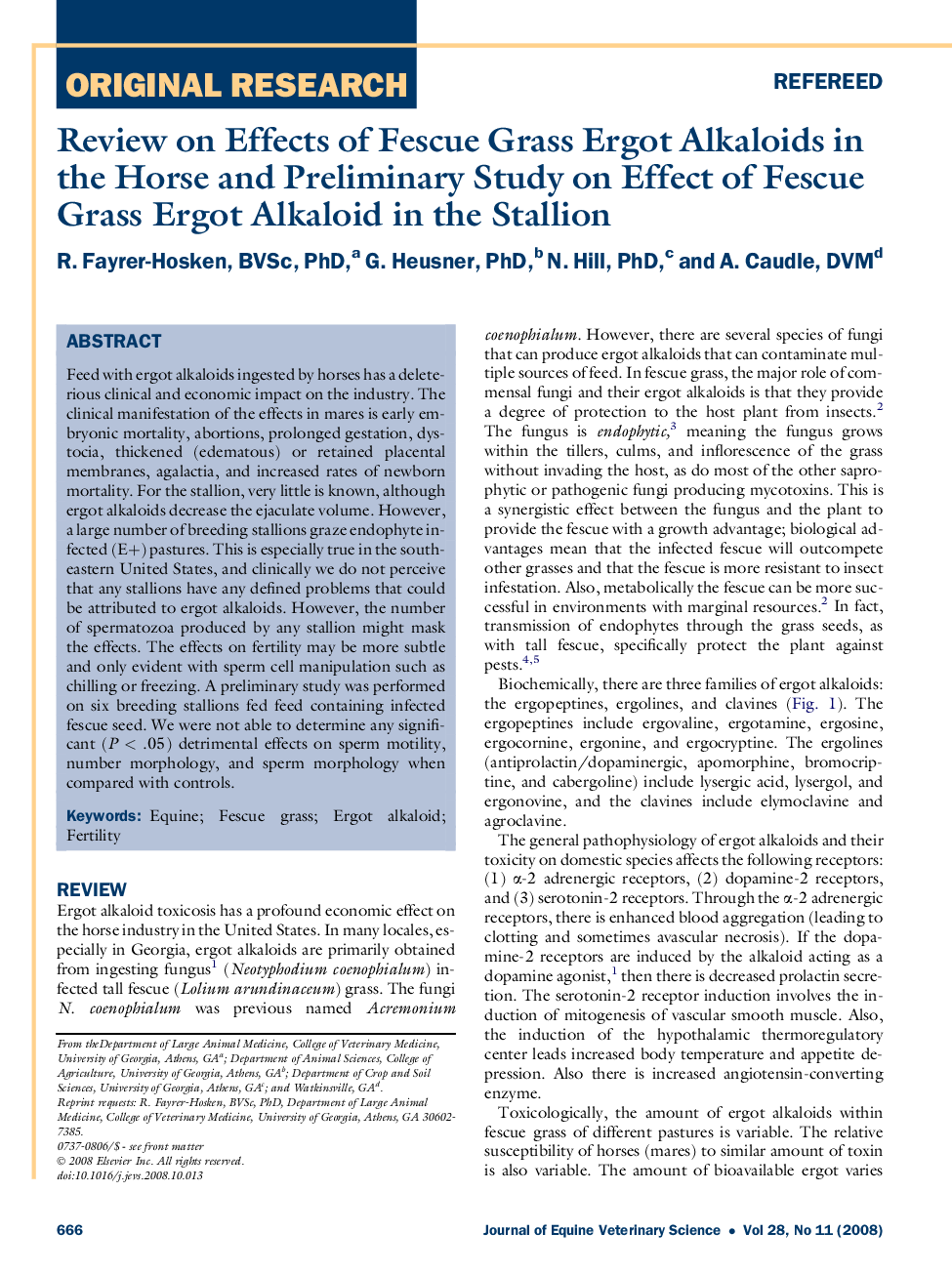| Article ID | Journal | Published Year | Pages | File Type |
|---|---|---|---|---|
| 2396187 | Journal of Equine Veterinary Science | 2008 | 6 Pages |
Feed with ergot alkaloids ingested by horses has a deleterious clinical and economic impact on the industry. The clinical manifestation of the effects in mares is early embryonic mortality, abortions, prolonged gestation, dystocia, thickened (edematous) or retained placental membranes, agalactia, and increased rates of newborn mortality. For the stallion, very little is known, although ergot alkaloids decrease the ejaculate volume. However, a large number of breeding stallions graze endophyte infected (E+) pastures. This is especially true in the southeastern United States, and clinically we do not perceive that any stallions have any defined problems that could be attributed to ergot alkaloids. However, the number of spermatozoa produced by any stallion might mask the effects. The effects on fertility may be more subtle and only evident with sperm cell manipulation such as chilling or freezing. A preliminary study was performed on six breeding stallions fed feed containing infected fescue seed. We were not able to determine any significant (P < .05) detrimental effects on sperm motility, number morphology, and sperm morphology when compared with controls.
